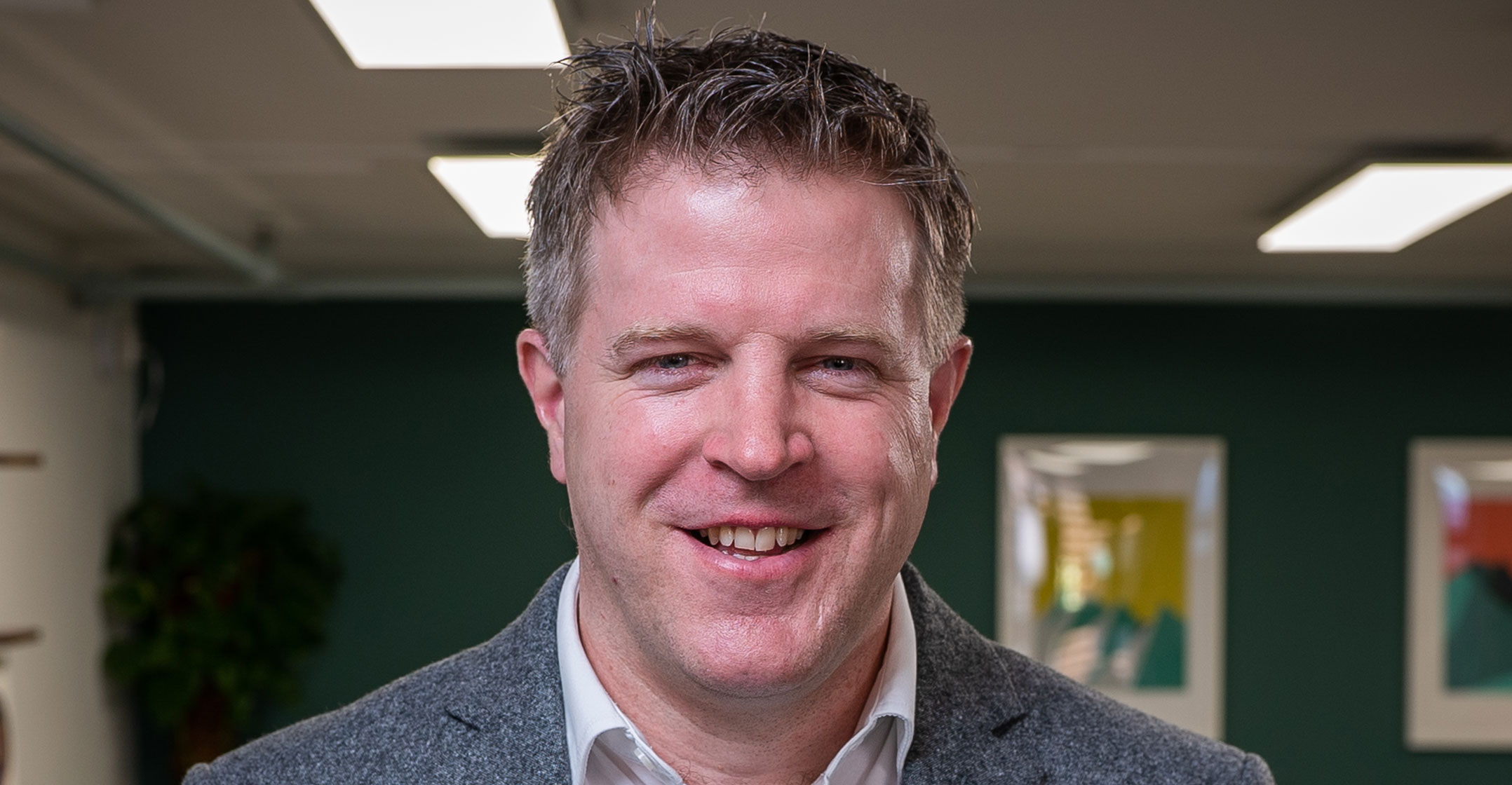
There’s no shortage of articles espousing the virtues of fintech’s potential to include hundreds of millions of people who are outside the financial mainstream. Despite this, one could argue that change is not happening fast enough.
Change requires momentum and momentum can only be achieved when more companies commit to taking tangible steps to include more people.
This is not to imply that financial inclusion is an illusion. On the contrary, technology has provided the greatest hope yet of changing the lives of millions across our beautiful continent. Technology is a powerful tool that supports financial inclusion. We should ask: How, through technology’s application, can we assist in making small, yet still meaningful, changes in people’s lives? In other words, rather than start with the end in mind, take the time to understand the contexts and needs of customers, and address those incrementally.
This is where real change starts: It is about giving people the tools to put them in control of their own destiny and benefit from and leverage off the positive trending behaviours that they’ve built up over time. This is the promise of fintech for the financially excluded — it is empowering. Its use can remove small impediments in a journey that allows people to benefit from momentum and do things for themselves.
We need to empower people to help themselves. This is not idealistic, but rather a sound philosophy, and certainly from Mukuru’s perspective, it influences business decisions in how we build a customer base that has access to a broader suite of financial services making use of our tools as links in a broader value chain.
Putting philosophy into practice
The traditional money transfer environment has been beset by barrier-to-entry obstacles. Essentially, people are treated like transactions. The process is documentation-intensive and tedious, with slow-moving parts. Because this world is not digitally tracked, every time a customer approaches a vendor like this, the entire process starts from scratch. In a continent with huge numbers of migrants and millions without formal bank accounts, it’s supremely inefficient, and the relationship borders on one that is extractive as opposed to productive.
Perhaps one of the misconceptions around making financial services more accessible is confusing the easing of barriers to entry with lowering checks and balances and being carefree with risk. This could not be further from the truth — fintech, when applied properly, lowers the access hurdles. In other words, it lowers the barriers to access with a risk-based approach.
 Put simply, technology allows more people to get their “foot in the door”. They then demonstrate their risk profile, and as they require more from the service, the requirements from them increase. The behaviour forms the data that is used to get the user to the next level of financial sophistication — information they may not have had previously as there was no digital record of their behaviour, for example. This is how the virtuous cycle of financial inclusion can work.
Put simply, technology allows more people to get their “foot in the door”. They then demonstrate their risk profile, and as they require more from the service, the requirements from them increase. The behaviour forms the data that is used to get the user to the next level of financial sophistication — information they may not have had previously as there was no digital record of their behaviour, for example. This is how the virtuous cycle of financial inclusion can work.
Far too many commentators, and even companies, start with the end goal of a fancy app on a smartphone. We’d advocate a different approach: Start where your intended customers find themselves, and take time to understand their needs, their wants and their context. Without understanding these elements, it’s impossible to design something that is able to change their lives materially — even if this change happens slowly and is incremental.
Where to from here?
Make no mistake, Africa has made great strides in foundational levels of access to financial services, but there is a long way to go. With a methodical, momentum-enhancing mindset of inclusive growth, companies can go a long way towards radically shifting the environment over the next five years.
1. Remove the barriers
Of course, the environment could do with some broader market conditions shifting in favour of financial inclusion. The cost of mobile data is excruciatingly expensive compared to developed markets. If one considers that consumers access financially inclusive technology using such data bundles, it follows that reducing data costs would enable increased use of and access to digitally enabled financial technology platforms. Companies should build data-friendly technology through the right channels and consider zero rating where possible. Other challenges include access to devices and administrative and legal barriers.
2. It starts with education
Education — this is both foundational education as well as financial literacy — cannot be over-emphasised and it is likely to be one of the most powerful tools to end the cycle of financial exclusion.
3. Get down to business
This won’t happen with more grandiose plans at a central level, but rather by stakeholders working in the space doing small things effectively. African companies have the entrepreneurial DNA required to make effective inroads in Africa. Where developed markets may see an impenetrable obstacle, African businesses, through sheer grit, creativity, and “Afri-can-do” ingenuity, continue to solve problems for themselves and their customers.
4. A drive towards interoperability
Far more work needs to happen around the interoperability of mobile wallets with mainstream institutions, for example. This discussion includes both the case for commercial stimulus and in many instances, regulators in various countries need to be at this discussion table.
5. The power of partnerships
Partnerships are paramount. Consider that when Mukuru, for example, partners with retailers it can operate with more than 320 000 cash-in/cash-out points. This sheer scale would not be possible without partnerships. Various partners can leverage the others’ customer base and product offering to broaden the suite of services that become accessible to Africans. These partnerships allow partners to generate more business and provide convenience for consumers.
What does the goal look like?
The end goal of financial inclusion isn’t simply creating a mobile wallet and incentivising use thereof to grow addressed market sizes. Rather it could be scoped as getting to a point where the vast majority of emerging African consumers participate in a formal financial services ecosystem that allows them to have a sense of control over their financial affairs.
As part of this ecosystem, they would be able to gain access to fairly priced, value-enhancing and ethical (as opposed to extractive, consumptive-focused) credit, for example, leveraging their behaviour over the last 12 months to purchase a farming implement on credit that would increase their crop yield by 30% and repay such loan with the incremental income.
Achieving this relative utopia is only possible if all stakeholders, including governments, businesses, lobby groups, educators and regulators alike, do a little less talking about financial inclusion and do a little more doing, and work towards making incremental, meaningful changes in people’s lives. This will build the momentum required to drive Africa into a new era of financial inclusion and economic prosperity.
About Mukuru
Mukuru is the largest money transfer provider in Africa and a leading next-generation financial services platform that offers affordable and reliable financial services to the emerging consumer.
With over 50 million transactions to date, our core was built providing international money transfers and from this base we’ve developed a set of services to address the broader financial needs of our customers.
We are a business that puts the customer at the centre of everything we do, and for that reason, we serve clients across physical and digital channels, by any means of payment methods (cash, card, wallet) as well as a range of engagement platforms including WhatsApp, USSD, contact centre, app, website, agents, and a branch and booth network.
Mukuru has been listed as one of the leading 150 cross-border companies globally in the 2020 FXC intelligence Incumbents vs Challengers in Cross-Border Payments.
Further information can be found at www.mukuru.com/the-mukuru-group.
- Andy Jury is CEO of Mukuru
- This promoted content was paid for by the party concerned

